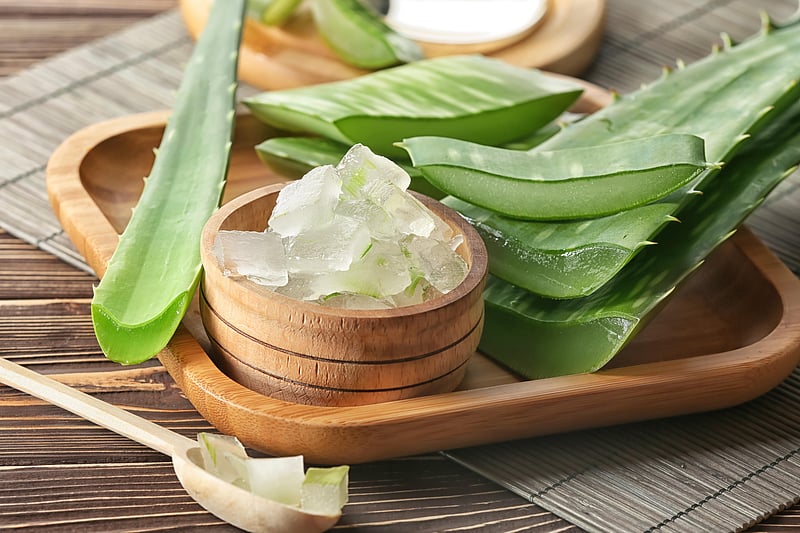Get Healthy!

- Cara Murez
- Posted August 15, 2023
Could the Aloe Plant Double as an Insecticide?
While vast quantities of peels from the aloe vera plant are thrown out every year as agricultural waste, this natural ingredient has potential to be a powerful insecticide, new research suggests.
"It's likely that millions of tons of aloe peels are disposed of globally every year,"said principal investigator Debasish Bandyopadhyay, from the University of Texas Rio Grande Valley. "We wanted to find a way to add value and make them useful."
The plant's rinds can naturally ward off bugs because of several bioactive compounds found in extracts from the peels.
The researchers will present their results this week at the fall meeting of the American Chemical Society, held online and in San Francisco.
Bandyopadhyay noticed when he was visiting a local aloe vera production center, that insects left the aloe leaves alone, even as they attacked the leaves of other plants.
He asked the CEO of the company if he could take the rinds back to his lab.
While some home gardeners have begun to use aloe gel as an ingredient in natural pesticides, these recipes don't always include the peels.
Currently, aloe peels are typically used to create biomass to improve soil quality at aloe farms. However, this rotting agricultural waste can release methane and other greenhouse gases into the atmosphere, contributing to global climate change.
Conversely, recycling the peels to develop a natural pesticide could help farmers in areas where insects can be a major threat, such as regions of Africa, the tropical and subtropical regions of the Americas, and the maize and millet fields in India. This would also be an environmentally friendly alternative for disposing of the peels.
"The goal is to recycle this waste in a meaningful way, while making aloe production greener and more sustainable,"Bandyopadhyay explained in a meeting news release.
His team first dried out the peels in the dark at room temperature by blowing air over them, so as not to change the bioactivity of the plant.
The researchers then produced various extracts from the peels using hexane, dichloromethane (DCM), methanol and water.
The hexane extract contains octacosane, which is a compound with known mosquito-killing properties. Yet in the new experiments, the DCM extract showed much higher insecticidal activity against agricultural pests than the hexane.
Researchers chemically profiled the DCM extract using high-performance liquid chromatography-mass spectrometry, which allows researchers to identify compounds.
The team was able to identify more than 20 compounds in the aloe vera rinds, many of which had antibacterial, antifungal or other potential health benefits. Among these were six compounds with known insecticidal properties.
The compounds were not toxic, so there were no significant safety concerns about creating an aloe peel-based insecticide.
The team now plans to test how well these compounds work in real-world fields against agricultural pests.
Bandyopadhyay is also working with colleagues to explore if these compounds have anti-mosquito and anti-tick properties.
"By creating an insecticide that avoids hazardous and poisonous synthetic chemicals, we can help the agricultural field,"Bandyopadhyay said. "But if the peels show good anti-mosquito or anti-tick activity, we can also help the general public."
Funding for the study came from the University of Texas Rio Grande Valley Faculty SEED Grant, the United States Department of Agriculture National Institute of Food and Agriculture, and the Robert A. Welch Foundation.
Findings presented at medical meetings are considered preliminary until published in a peer-reviewed journal.
More information
The U.S. National Institutes of Health has more on aloe vera.
SOURCE: American Chemical Society, news release, Aug. 15, 2023

